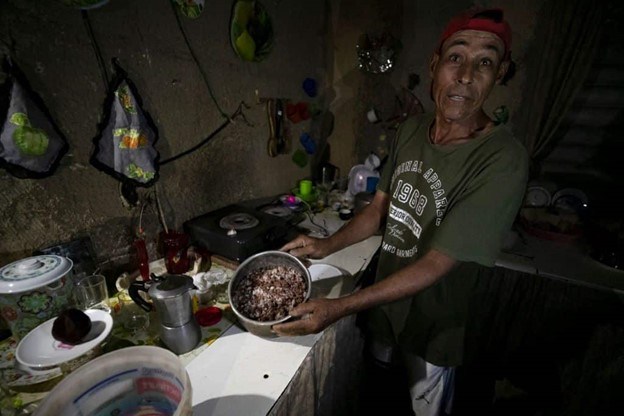
Errors of the dictatorship in Cuban economic and monetary policy generate a shortage of basic goods —food, medicine, fuel— and blackouts.
HAVANA TIMES – In the darkness of her home, Catalina, 35, reflects on the problems of her daily life, similar to those experienced by millions of people in Cuba due to the serious economic crisis affecting the country, which has sparked protests in several cities in recent days.
“There is no bread, no milk. We don’t have electricity. The children don’t go to school because they don’t have breakfast, and when they do, they walk up to three kilometers because there is no transportation,” she tells the EFE news agency while her husband Victor, 49, only nods with a lost gaze.
He says he has already asked to leave work once because, amidst so much heat, blackouts of more than ten hours, and other difficulties, staying on his feet is a challenge: [I told them] “I’m leaving because I’m sleepy, I’m tired (…) This is tough, very tough.”
The couple lives in Pura y Limpia, a humble barrio near the town of Santa Marta, Matanzas in western Cuba.
EFE spoke with them a week before demonstrations took place there —and in four other municipalities on the island— on March 17th, with some involving hundreds of people, shouting “Food and electricity!”, but also “Freedom!” and “Homeland and life!”.
For Catalina and Victor, as well as their neighbors, life has become increasingly difficult in the last three years.
The pandemic, US sanctions, and errors in national economic and monetary policy have exacerbated structural problems in the Cuban system and led to shortages of basic goods (food, medicine, fuel), blackouts, inflation, mass migration, and social discontent.
Two classes of citizens within Cuba
Pura y Limpia, located near an abandoned sugar mill, is just six kilometers from Varadero, the country’s major sun and beach tourism hub.
The inhabitants of the barrio —several of whom work in the tourist area— witness two drastically different realities every day. The trip from Varadero to the neighborhood demonstrates this: at one point in the journey, when the line of hotels, rental houses, and private restaurants is left behind, the streetlights go out.
“I’m going home to the blackout,” say those who work in the tourist center when they return home, a neighbor


